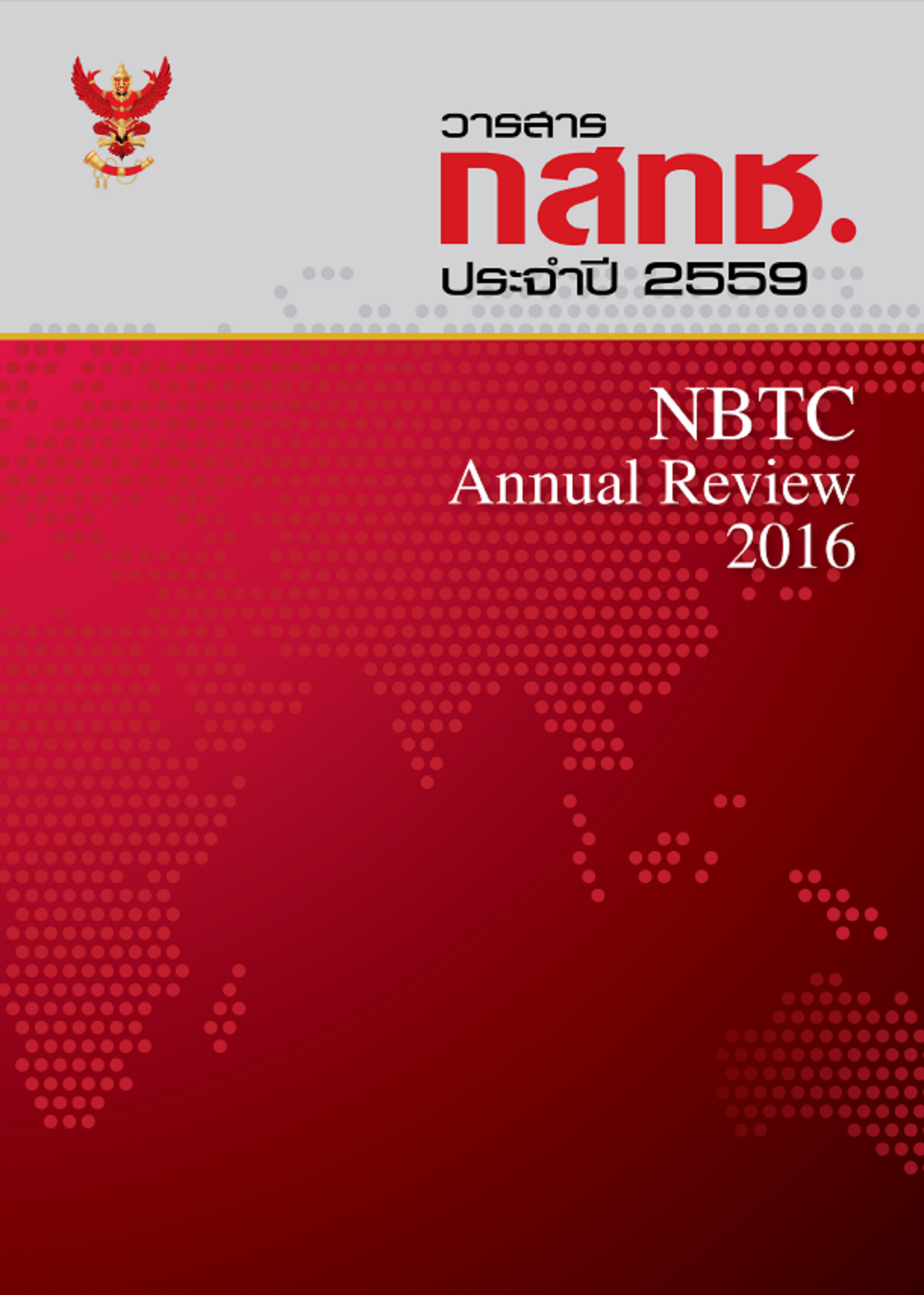การเปิดเผยข้อมูลภาครัฐในรูปแบบ Business Intelligence (BI) ในยุค Big Data
Abstract
Technology plays an important role in many activities of daily life. Both public and private organizations have tried to improve their operations to keep in pace with a fast-moving environment by using the technology to support many operational activities and to manage high-velocity and high-variety data, called big data. Owing to the convenience and quickness of accessing to data at present, the production and dissemination of data to many segments is deemed to be a critical task. Publicizing the high quality data not only reflects to the credibility of the data source, but also makes the data being relayed faultlessly. Consequently, selecting the right technology tools for publicizing data and making them available for everyone to be adopted is considered a critical issue. This is especially true for every government that needs to create patterns for data communication systems to serve the public interest. Amongst many technology tools, the development of business intelligence (BI) is one of the technologies that can potentially fulfill the requirements of big data management. Many countries across the globe have utilized BI for disseminating government information so as to promote the quality of life of general public as well as to enhance the country’s potential.
References
สำนักงานรัฐบาลอิเล็กทรอนิกส์ (องค์การมหาชน). (2559). Open Data Handbook. สืบค้นจาก https://Data.go.th
สำนักงานรัฐบาลอิเล็กทรอนิกส์ (องค์การมหาชน). (2559). GovChannel. สืบค้นจาก https://www.ega.or.th/th/profile/990
บริษัท การ์ทเนอร์. (2558). Flipping to Digital Leadership. สืบค้นจาก https://www.gartner.com/imagesrv/cio/pdf/cio_
agenda_insights2015.pdf
Ryan Mulcahy. (Mar 6, 2007). ชื่อเรื่อง Business Intelligence Definition and Solutions. สืบค้นจากhttps://www.cio.com/
article/2439504/business-intelligence/business-intelligence-definition-and-solutions.html?nsdr=true#1
Government Digital Service Part of Cabinet Office and Efficiency and Reform Group. (2559). Performance. สืบค้นจาก
www.gov.uk
NYC.gov. (2559). NYC OpenData. สืบค้นจาก https://nycopenData.socrata.com
รัฐบาลสิงคโปร์. (2559). Singapore's open Data portal. สืบค้นจาก https://Data.gov.sg
สำนักงาน กสทช. (2559). รายงานสภาพตลาดกิจการโทรทัศน์. สืบค้นจาก https://broadcast.nbtc.go.th/bi/public
สำนักงาน กสทช. (2559). ฐานข้อมูลอุตสาหกรรมโทรคมนาคมไทย (Thailand Telecom Industry Database). สืบค้นจาก
https://ttid.nbtc.go.th/main.html
Forbesthailand. (2557). สารสนเทศภูมิศาสตร์ (GIS). โครงสร้างพื้นฐานในการสร้างเศรษฐกิจดิจิทัล. สืบค้นจาก
https://www.forbesthailand.com/commentaries-detail.php?did=219
MK. (2558). สัมภาษณ์คนไทยในซิลิคอนวัลเลย์-ภูวรัฐ หน่อชูเวช กับงานวิเคราะห์ข้อมูลที่ Airbnb. สืบค้นจาก
https://www.blognone.com/node/75742
Techtalkthai. (2559). 10 แนวโน้มสำหรับเทคโนโลยี Business Intelligence ในปี 2016. สืบค้นจาก
https://www.techtalkthai.com/10-business-intelligence-trends-2016/
Techtalkthai. (2559). 4 สิ่งที่ Business Intelligence เปลี่ยนไปจากการมาของ Big Data Analytics ในธุรกิจองค์กร. สืบค้นจาก
https://www.techtalkthai.com/4-things-business-intelligence-has-been-changed-by-big-Data-analytics/
Downloads
Published
How to Cite
Issue
Section
License
The Office of the NBTC holds the copyright of articles appearing in the journal. The Office of the NBTC allows the public or individuals to distribute, copy, or republish the work under a Creative Commons license (CC), with attribution (BY), No Derivatives (ND) and NonCommercial (NC); unless written permission is received from the Office of the NBTC.
Text, tables, and figures that appear in articles accepted for publication in this journal are personal opinion and responsibility of the author, and not binding on the NBTC and the Office of the NBTC. In case of errors, each author is solely responsible for their own article, and not concerning the NBTC and the NBTC Office in any way.



